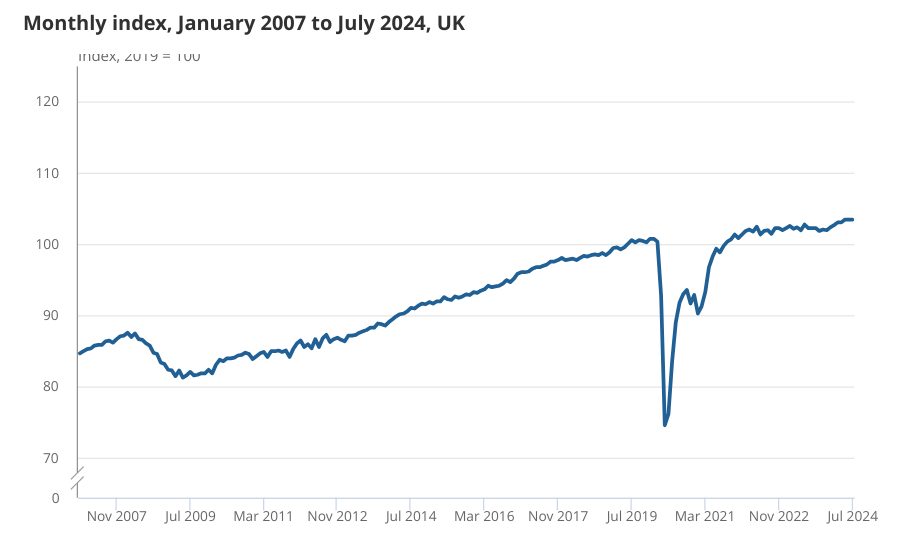GDP unexpectedly stagnates in July following strong first half of 2024

Economic growth came to a standstill in July, according to official estimates, in a sign that the UK’s surprisingly strong start to the year might have come to a halt.
New figures show that the UK economy stagnated month-on-month in July, falling short of the 0.2 per cent growth expected by economists.
The services sector was the only sector to record growth in July, expanding 0.1 per cent. The production sector, meanwhile, contracted 0.8 per cent while the construction sector fell 0. 4 per cent.
“July’s monthly services growth was led by computer programmers and health, which recovered from strike action in June. These gains were partially offset by falls for advertising companies, architects and engineers,” Liz Mckeown, ONS Director of Economic Statistics, said.
“Manufacturing fell, overall, with a particularly poor month for car and machinery firms, while construction also declined,” Mckeown continued.
The economy grew 0.5 per cent over the three months to July, largely due to strength in the services sector. Output expanded in 11 of the 14 subsectors measured, the ONS said.
The figures mean the UK has not expanded for the past two months, putting the economy on track for a weaker second half of the year.
The UK was the fastest-growing economy in the G7 in the first half of 2024, surprising many pundits who had expected another yet of relative stagnation.

GDP grew 0.6 per cent in the second quarter, having notched a 0.7 per cent expansion in the first three months of the year.
Most economists thought that the pace of growth would slow over the remainder of the year.
Despite falling short of consensus, Michael Brown, senior research strategist at Pepperstone, said the figures were “broadly in-keeping with expectations for growth to moderate”.
The UK is still on track to grow around 1.0 per cent in 2024, well ahead of the 0.3 per cent pencilled in by analysts last December.
Economic growth has been at the heart of Labour’s agenda, with Starmer claiming wealth creation is his “number one priority“.
Since entering office, ministers have announced ambitious plans to overhaul the planning regime as well as proposals to help the long-term sick back into work.
However, some economists are worried that the October Budget will hamstring economic performance, particularly if there are hefty tax increases.
“The government needs to be careful not to overcorrect with its narrative around tax rises and the potential this has to put off investment,” Lindsay James, investment strategist at Quilter Investors, said.
Responding to the figures, Chancellor Rachel Reeves said she was under “no illusion” about the scale of the challenge facing the government.
“Two quarters of positive economic growth does not make up for fourteen years of stagnation,” she said.